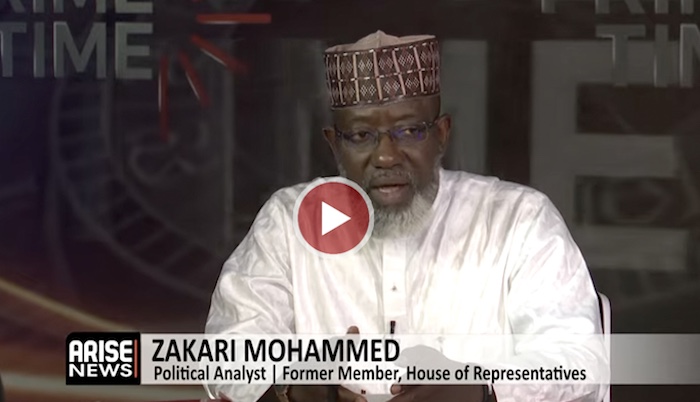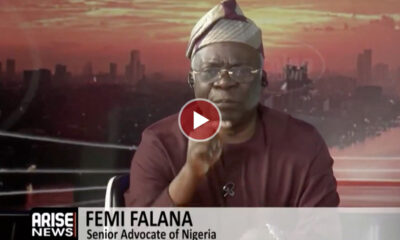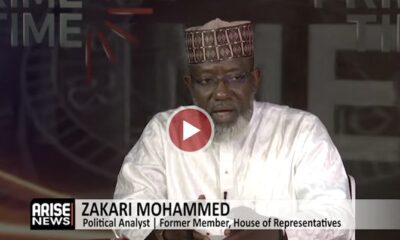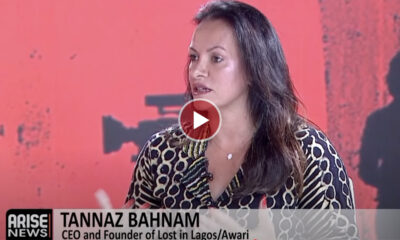Top Stories
Zakar Mohammed Calls Presidential Pardon Reversal a National Embarrassment

Former member of the House of Representatives and political analyst Zakar Mohammed has condemned the recent reversal of President Bola Tinubu’s pardon list, labeling it a “national embarrassment.” During an interview on ARISE News, he criticized the process as politically compromised and poorly managed, highlighting significant lapses within the Presidency.
Mohammed stated that such incidents reflect a serious failure in governance, emphasizing that “even with the military heads of state, I don’t think this has happened.” He argued that President Tinubu must critically evaluate those surrounding him and their capabilities. “It’s not enough giving responsibilities to people who cannot read memos of just 20 pages,” he added, suggesting that this lack of competence contributes to the current issues.
According to Mohammed, the initial pardon list should have undergone a more rigorous vetting process before reaching the President. He explained, “Before this list gets to Mr. President, there should be another layer that sieves it.” He advocated for the involvement of qualified individuals in the review process, stating that even the Attorney General, whom he respects, should find the situation professionally embarrassing.
The former lawmaker referenced Section 175 of the 1999 Constitution, which grants the President the power to grant pardons but does not allow for their reversal once they have been executed. “If you look at Atiku Abubakar v. Federal Government (2007), the court held that whatever is said under that law is final and irrevocable,” he noted. Mohammed also pointed to global precedents where similar prerogatives of mercy are irreversible, mentioning cases from the United Kingdom and the United States.
He highlighted a past instance involving former President Goodluck Jonathan, who granted pardons to Major Hamza Al-Mustapha and others in 2013. Although this decision sparked controversy, it was not reversed due to legal constraints. “Jonathan gave pardon to Al-Mustapha and Alamieyeseigha. There was a huge outcry, but he couldn’t revisit it because he knew the law did not permit that,” he stated.
Mohammed criticized the current administration’s decision-making process, suggesting that political motivations influenced the handling of the pardon list. “I can tell you from where I’m sitting that the list has been politicised,” he remarked, indicating that the Attorney General’s cautious responses reflect underlying issues.
He questioned the priorities of the government, particularly its responsiveness to public pressure regarding the pardon list while ignoring pressing economic concerns, such as the removal of fuel subsidies. “If the President listens, why didn’t he revisit the matter of subsidy?” he asked. “You don’t perform three operations on a patient at once.”
In closing, Mohammed reiterated that the reversal of the pardon is not only legally questionable but also undermines the integrity of governance in Nigeria. “It took public outcry for the revisit to happen, but even that revisit is not within the law. The Council of State should have been fully involved,” he concluded.
The implications of this situation extend beyond the immediate political landscape, raising questions about the efficacy of governance and the adherence to legal standards in Nigeria.
-

 Entertainment2 months ago
Entertainment2 months agoAnn Ming Reflects on ITV’s ‘I Fought the Law’ Drama
-

 Entertainment3 months ago
Entertainment3 months agoKate Garraway Sells £2 Million Home Amid Financial Struggles
-

 Health2 months ago
Health2 months agoKatie Price Faces New Health Concerns After Cancer Symptoms Resurface
-

 Entertainment2 months ago
Entertainment2 months agoCoronation Street’s Carl Webster Faces Trouble with New Affairs
-

 Entertainment2 months ago
Entertainment2 months agoWhere is Tinder Swindler Simon Leviev? Latest Updates Revealed
-

 Entertainment3 months ago
Entertainment3 months agoKim Cattrall Posts Cryptic Message After HBO’s Sequel Cancellation
-

 Entertainment2 months ago
Entertainment2 months agoOlivia Attwood Opens Up About Fallout with Former Best Friend
-

 Entertainment2 months ago
Entertainment2 months agoMasterChef Faces Turmoil as Tom Kerridge Withdraws from Hosting Role
-

 Entertainment3 months ago
Entertainment3 months agoMarkiplier Addresses AI Controversy During Livestream Response
-

 Entertainment4 months ago
Entertainment4 months agoSpeculation Surrounds Home and Away as Cast Departures Mount
-

 World2 months ago
World2 months agoCole Palmer’s Mysterious Message to Kobbie Mainoo Sparks Speculation
-

 Entertainment2 months ago
Entertainment2 months agoITV’s I Fought the Law: Unraveling the True Story Behind the Drama





















